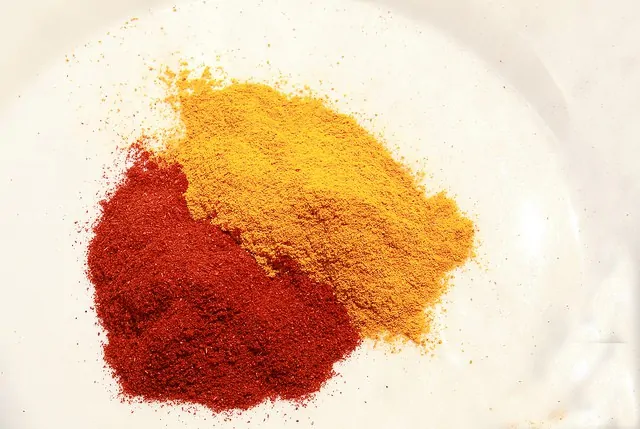Does taking medication for anxiety, depression, or any other mental disorder worry you or someone you know? If so, that’s OK — it’s no secret to mental health professionals that some people don’t respond to medication. And as a doctor in the mental health field, I can tell you that — until recently — we didn’t even know why. But a growing body of inflammation research may finally provide some answers.
In the past decade, research on inflammation’s role in disease processes has exploded. We’re flooded by ads for chronic inflammatory medications like Enbrel, Remicade, and Humira. They treat disorders like rheumatoid arthritis, ulcerative colitis, ankylosing spondylitis, and psoriasis by targeting the pathways that cause inflammation.
While developing these and other antibody medications, researchers also discovered that they lowered the risks for cardiovascular disease, diabetes, and even cancer. The surprising results suggest that inflammation is an underlying cause for these diseases as well!
We’re now learning that a host of mental disorders can also be caused or exacerbated by chronic inflammation. So if you or someone you know isn’t responding well to psychiatric medicine or would rather try a more holistic approach to mental health, managing inflammation could be the answer.

Inflammation and Mental Health
The idea of a connection between mental health and the immune system is more than a century old, but recently, it’s been heavily supported by inflammation and infection research. For instance, several studies have focused on the immune system’s activation, which directly affects inflammation levels and their role in schizophrenia.
There is also speculation that exposure to infectious bacteria, parasites, and viruses in utero or early in life might increase the risk for psychiatric disorders. A recent study published in Brain, Behavior, and Immunity unveiled that inflammatory markers are associated with major depressive disorder (MDD), one of the most frequently untreatable mental health conditions.
In another study published in Molecular Psychiatry, pregnant women with elevated levels of inflammatory markers like cytokines indicated increased risks for autism spectrum disorder (ASD) in their children. This, along with other studies, has taught us that inflammation affects the expression of genes in our DNA, increasing the risks of psychiatric and systemic disorders.
It also makes treatment of these conditions more difficult. Completely eliminating inflammation from the body is impossible. After all, inflammation is a vital immune response necessary for treating acute infection.
However, reducing excess inflammation is a good way to reduce your risks of chronic illness and mental health conditions. Here are four ways you can lower your body’s inflammation to gain a new lease on life.
4 Ways to Reduce Inflammation
1. Reduce body fat
Scientists from the Research Institute for Internal Medicine at the University of Oslo discovered that overeating leads to an increase in the immune response, causing it to generate excess inflammation. Conversely, undereating causes a decrease in the immune response, which increases the risk of infection and illness.
The key is balance. Eat healthy and exercise regularly to keep your immune system and inflammatory responses regulated.
2. Eat low-inflammation foods
Speaking of eating healthy, many foods and beverages possess anti-inflammatory components that help boost the immune system’s ability to regulate inflammation. The next time you go grocery shopping, choose plenty of tomatoes, olive oil, green leafy vegetables, nuts, fatty fish, fruits, and berries.
3. Live in a low-pollution area
Air pollution has been a significant health concern for nearly a century, and scientists now know that particulates from air pollution can initiate inflammation in the cardiovascular system. It can be difficult to find a completely pollution-free zone in any city, but to the extent that it’s possible, living in a lower-pollution area can lessen your risk of chronic inflammation.
4. Take inflammation-lowering supplements
While you may not respond to typical mental health medications, your body might do a lot better with more natural anti-inflammatory agents, which provide additional healing support when combined with a healthy lifestyle. Supplements like turmeric, green tea, flax oil, cod liver oil, aloe, walnut oil, goji berries, and more can help relieve excess inflammation, though you should speak with a knowledgeable health professional before taking any.
The Takeaway
There’s a paradigm shift in medicine regarding the connection between inflammation and mental health. Psychiatric disorders that previously seemed untreatable are making more sense, and we now have hope of finding effective, long-term solutions for everyone.
With these new understandings, you might have a higher chance of enjoying a better quality of life by learning to identify and manage your risk factors for chronic inflammation.
********
 Dr. Mark Calarco is the national medical director of American Addiction Centers, a leader in drug and alcohol abuse treatment. He is a pioneer in treating hormone imbalances in recovering individuals and has served as a board member for the State of Tennessee Medical Laboratory Board and the American Academy of Anti-Aging Medicine. Dr. Calarco was also the first board-certified anti-aging and regenerative medicine specialist in Tennessee.
Dr. Mark Calarco is the national medical director of American Addiction Centers, a leader in drug and alcohol abuse treatment. He is a pioneer in treating hormone imbalances in recovering individuals and has served as a board member for the State of Tennessee Medical Laboratory Board and the American Academy of Anti-Aging Medicine. Dr. Calarco was also the first board-certified anti-aging and regenerative medicine specialist in Tennessee.
Featured photo by zeevveez
